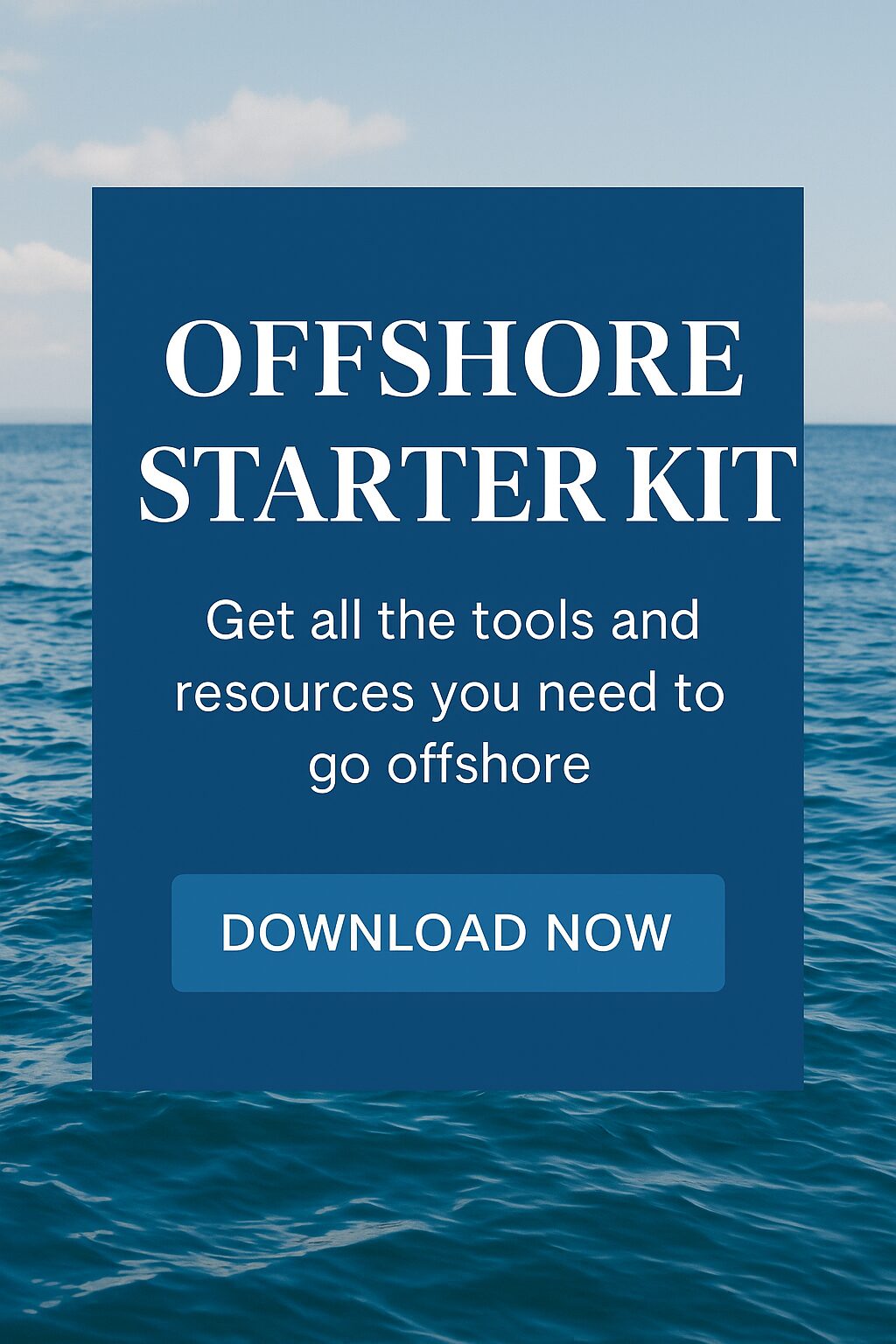Introduction: Understanding Onshore and Offshore Business Strategies
In today’s global economy, businesses and investors face an important decision—should they operate onshore or offshore? Each option offers unique advantages, but choosing the right structure can impact taxation, asset protection, business growth, and regulatory compliance.
This guide will explore the key differences, benefits, and challenges of onshore vs. offshore business strategies, helping you determine which approach best suits your financial and business goals.
What is Onshore vs. Offshore?

Onshore Business Structures
An onshore business operates within a country’s legal and tax jurisdiction. These businesses are subject to local corporate taxes, labor laws, and financial regulations. Examples include:
- A U.S.-registered company operating in the U.S.
- A UK-based investment firm serving UK clients.
- A German consulting firm providing services to European clients.
Offshore Business Structures
An offshore business is incorporated in a jurisdiction outside of where it primarily operates. Offshore businesses often benefit from reduced taxation, asset protection laws, and confidentiality. Examples include:
- A Cayman Islands LLC for asset protection.
- A Swiss bank account for international clients.
- A Hong Kong trading company handling global exports.
Key Differences Between Onshore and Offshore
| Feature | Onshore | Offshore |
|---|---|---|
| Legal Jurisdiction | Located within a country’s legal system | Registered in a different country |
| Taxation | Subject to local corporate and income taxes | Often benefits from low or zero tax rates |
| Privacy | Public records may be required | Greater confidentiality |
| Regulatory Burden | Stricter compliance rules | More flexible regulations |
| Business Operations | Typically serves local markets | Can operate internationally |
| Cost | Higher costs due to taxes and regulations | Lower operating costs |
Pros and Cons of Onshore Business Structures
Advantages
The Offshore Banking Quick Start Guide is a 70+ page, no-fluff blueprint that takes you from “I don’t know what to do” to submitting a bank-ready offshore application with confidence.
Get the Offshore Banking Quick Start Guide ($9)
- Strong legal protections for business owners.
- Easier access to domestic banking, credit, and financing.
- Greater public trust and reputation advantages.
- Simplified regulatory reporting when operating within one jurisdiction.
Disadvantages
- Higher corporate and income tax obligations.
- Increased regulatory compliance and labor laws.
- Less financial privacy due to public registration requirements.
- Limited asset protection strategies compared to offshore jurisdictions.
Pros and Cons of Offshore Business Structures
Advantages
- Potential for lower tax obligations or complete tax exemptions.
- Strong asset protection from lawsuits and creditors.
- Greater financial privacy with non-public company ownership records.
- Lower operational costs due to flexible labor and regulatory laws.
Disadvantages
- Increased scrutiny from tax authorities (FATCA, CRS compliance).
- Difficulty in opening bank accounts due to strict KYC regulations.
- Public perception issues around offshore structures.
- Some jurisdictions limit local business activities for offshore companies.
Onshore vs. Offshore Banking: Where Should You Store Your Money?

Onshore Banking
- Provides stability and easier access to domestic banking networks.
- Stronger consumer protections and government oversight.
- Often required for businesses that serve local customers.
Offshore Banking
- Allows for multi-currency accounts and global financial flexibility.
- Stronger asset protection against government seizures and litigation.
- Some offshore jurisdictions offer higher interest rates and financial stability.
Hybrid Strategy
Many businesses and investors maintain both onshore and offshore bank accounts to balance security, accessibility, and tax efficiency.
When to Choose Onshore vs. Offshore
When to Choose Onshore
- If your business primarily serves a local customer base.
- If you need legal protections under domestic laws.
- If you require financing from domestic banks and investors.
When to Choose Offshore
- If you seek tax optimization and financial efficiency.
- If asset protection from legal claims is a priority.
- If your business operates internationally and requires financial flexibility.
Hybrid Approach
Some businesses register both onshore and offshore entities to optimize compliance while benefiting from tax advantages and asset protection.
Legal Considerations & Compliance Risks for Onshore Offshore
Onshore Compliance
- Subject to corporate tax laws and financial reporting requirements.
- Requires transparency in company ownership and public records.
- Easier to obtain business banking and credit services.
Offshore Compliance
- Must adhere to international tax reporting laws (FATCA, CRS).
- Some jurisdictions require economic substance to prove real business operations.
- Requires working with legal professionals to ensure compliance and legitimacy.
Final Words on the Onshore Offshore Debate
Choosing between onshore and offshore structures depends on your business needs, tax planning goals, and financial strategy. Onshore structures provide stability and reputation advantages, while offshore entities offer tax efficiency and asset protection.
If you’re considering an onshore or offshore business strategy, consulting with a legal or financial expert can help ensure compliance and maximize benefits.
Thinking about setting up an offshore or onshore business? Contact an expert today to explore your options.










